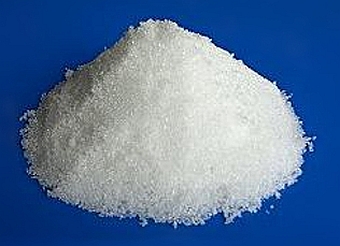
Acids, bases, salts: Can an oxide be a salt? Let’s find out. Combine an acid and a base and you often get back a salt and water. This should be no surprise. It is high school chemistry. Assume we have a most simple acid, H-A. Too, we have a most simple base, B-OH. If we react the two, we expect the reaction mechanism to be written,
H-A + B-OH → B-A + H2O
H2O is, of course, water. B-A is the expected salt.
Is An Oxide a Salt?
Let us consider an example that deviates from the above simple concept—aluminum. Metals tend toward cationic (+) behavior. Non-metals act in opposite fashion, tending toward anionic (-) behavior. Aluminum is amphoteric. That means it can do both. It crosses over the line.
Aluminum hydroxide, a weak base, is written Al(OH)3. But aluminum can form an acid, aluminic acid, written HAlO2. Combining these two, we get,
3 HAlO2 + Al(OH)3 → 2 Al2O3 + 3 H2O
Aluminum oxide, in this context, can be considered a salt—the product of reaction of an acid and a base. There is a catch. These two substances aren’t the most water-soluble substances in the world. There is another way to achieve the same result, using an acidic salt and a basic salt. After all, what an acid is and what a base is are relative.
Achieving the Same Result
Let’s choose aluminum chloride and sodium aluminate as our acid salt [sometimes called a Lewis acid] and our basic salt [sometimes called a Lewis base], respectively. Our reaction then becomes,
Al(Cl)3 + 3 NaAlO2 → 2 Al2O3 + 3 NaCl
We can think of this reaction as the combining of an acidic salt with a basic salt to yield a neutral salt and an oxide.
Acids, Bases, Salts: In Conclusion
Chemistry is often explained at the elementary level in easily understood, general terms. With increasing insight, though those terms begin to stand on shaky ground. But they are still useful concepts that aid in understanding.
In this case, as might be expected, the other amphoteric elements can exhibits some of the same behavior exhibited by aluminum.
Note: You might also enjoy On the Nature of Azeotropes